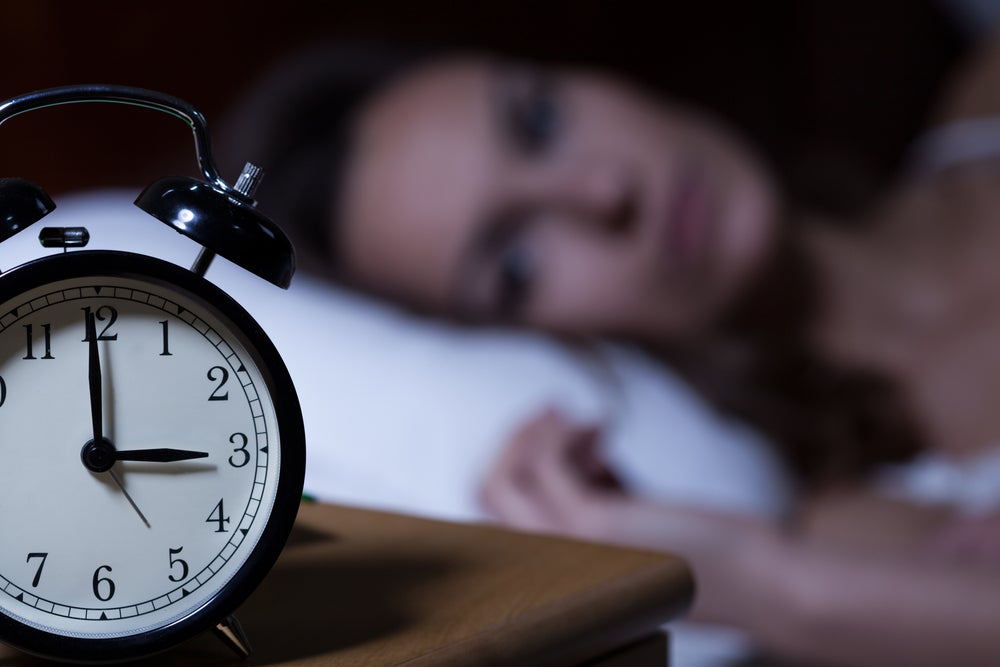8 Tips for Managing Insomnia after Hysterectomy
Insomnia after hysterectomy can be a particularly troubling issue as you need your sleep for healing. Once you are ready to get back to regular life, you will also need your sleep so you can keep your energy level up as you continue to adjust to all the changes your body has gone through. As sleep is so important, you don’t want to ignore insomnia that lasts more than a couple days.
Here are 8 tips you can try to help you cope with insomnia and fall asleep each night. You may find that one tip works for you, or you may need to try a combination of tips for the best results.
1. Use piles of pillows.
Piles of pillows can help you be more comfortable so you can relax and fall asleep. You can place them behind your back, under your knees, across your tummy, and elsewhere to help you feel comfy and secure.
2. Bedtime snacks.
Some foods and drinks before bedtime can help you sleep, while others can keep you awake. Beginning in the afternoon, you should avoid caffeine in both food and drinks, alcohol, and any foods that cause heartburn and intestinal discomfort. Instead, before bed indulge in Ovaltine, warm milk, Sleepytime teas, and slices of turkey, all of which can help you sleep.
3. Talk a walk outside–but not immediately before bed.
Being active can help you sleep at night, but exercise should not be done immediately before bed. Walking after your hysterectomy can be good for you in many ways, so everyday try to get outside for a walk in the sunshine. Remember to keep your walking within your limitations based on where you are in recovery. If you overdo it, the walking could be counterproductive and keep you awake in pain!
4. Try over the counter remedies.
Over the counter remedies like Melatonin, Sominex, or herbal products could help you fall asleep. You’ll need to check with your doctor before using them, and your doctor may suggest some other alternatives which may be better for you. You should not use your prescription pain medications as sleep aids as that could lead to an addiction issue as well and make it more difficult to manage pain in the future.
5. Talk to your doctor about your hormones.
Hormonal imbalance and menopause can cause insomnia and sleep issues. If you are using hormone replacement therapy (HRT), your balance may not be correct and you need an adjustment. If you are not using HRT, you may need some even if only temporarily.
6. Relax.
If you are not relaxed, your aggravation can make it more difficult to fall asleep and stay asleep. Avoiding stressful activities shortly before bedtime is wise, as well as learning effective ways to manage stress. You might find breathing exercises, meditation, soothing music, or scented candles help you feel more calm and peaceful so you can sleep. Also, to allow your mind to slow down rather than rev up, choose your nighttime activities wisely. The news, TV, and electronic devices can all be counterproductive for preparing you to relax and fall asleep.
7. Create a bedtime routine.
Having a bedtime routine can help your mind and body wind down and prepare to fall asleep. Your routine should be exactly the same every night, from the time you begin to prepare for bed to the order of your bedtime routine. You should create a schedule and stick to it so your mind and body automatically know to wind down when you begin your routine.
8. Make your room sleep ready.
Your room should be free of clutter and chaos with lighting that is softer and windows that are covered. You should also keep your room cool, but not cold, and use white noise or earplugs if necessary to block out annoying sounds. You want your bedroom to convey rest and sleep, so choose colors and decor accordingly.
You can browse through the other HysterSisters Hysterectomy Recovery Articles to find more tips and valuable information for your hysterectomy recovery. Article printed by permission: 8 Tips for Managing Insomnia After Hysterectomy.







